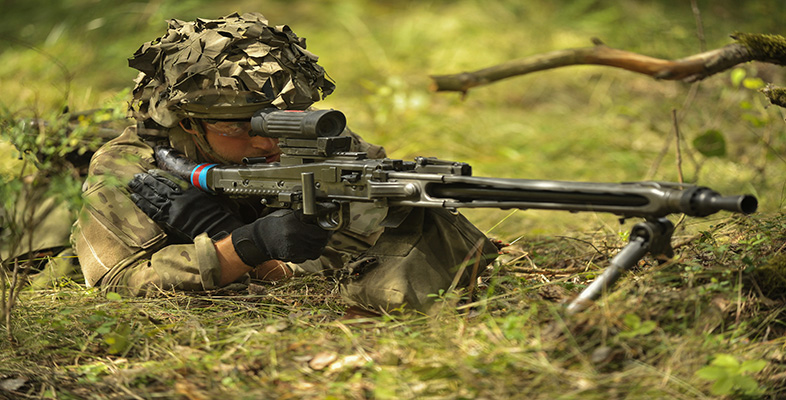The independence of the JaB and JiB conditions
The supposed moral equality of combatants is closely related to the idea that there is a clear distinction between the conditions under which one may justifiably resort to war and the conditions one must observe if one is to fight justly. Walzer himself claims that the JaB and JiB conditions are ‘logically independent. It is perfectly possible for a just war to be fought unjustly and for an unjust war to be fought in strict accordance with the rules’ (1977, p. 21). George Fletcher and Jens David Ohlin write that ‘the most basic … architectonic distinction that structure[s] the law of war is the radical separation of Jus ad Bellum and Jus in Bello . The lawfulness of war has no bearing on the proper conduct of war’ (2008, p. 20).
It is often suggested that the JaB and JiB conditions also apply most directly to different groups of people. Statesmen and politicians need to decide about the justice of going to war (the JaB conditions) while those who actually fight – combatants – need to think (only) about their conduct in war (the JiB conditions). So, a sharp distinction between the conditions of JaB and JiB is closely related to the moral equality of combatants. The moral equality of combatants means that both sides can fight well. Equally, it means that both sides can fight unjustly. The combatants on both sides have to conform to the same rules of war: they are morally equal. This is the dominant view in the Just War Tradition, both as an understanding of the morality of war and as an interpretation of the laws governing the conduct of war.
Activity 3
Part 1
Drawing on whatever general knowledge you have of warfare, or your imagination, give an example of just combatants fighting by just means.
Part 2
Now give an example of just combatants fighting by unjust means.
Part 3
Now give an example of unjust combatants fighting by just means.
Part 4
Finally, give an example of unjust combatants fighting by unjust means.
Discussion
Here are my examples.
Just combatants fighting by just means: most of the allied war effort of the Second World War.
Just combatants fighting by unjust means: the dropping of the atom bomb on Hiroshima by the Enola Gay .
Unjust combatants fighting by just means: Erwin Rommel (burning of the commando order).
Unjust combatants fighting by unjust means: most of the German war campaign of the Second World War, especially, for example, the London Blitz.
I do not wish to smuggle in the claim that the dropping of the atom bombs on Japan failed to meet the JiB conditions. I happen to think that it is a good example of when actions in a just cause did fail in this respect, but I am not going to argue that here. Note that this could be a different claim from the claim that the dropping of the atom bomb was justified . It might be argued that the bombing of Hiroshima and Nagasaki was a case in which the normal rules of war were justifiably suspended or that it was justified on a straight utilitarian basis, breaking with the Just War Tradition that we are examining. I am sceptical of such claims, but it is a possible move in the argument.
The important issue is whether it could be that a just cause justifies anything done in its name, so that anything done in accordance with the JaB conditions is as a result in accordance with the JiB conditions. This seems implausible. It seems open to us to look for examples of warfare that were in accordance with the JaB conditions but in breach of the JiB conditions. We can argue about examples, but the issue is that, in the Just War Tradition, there can be such examples: just combatants fighting by unjust means is a possibility. Importantly, too (on this line of argument), unjust combatants fighting by just means is a possibility: even though their cause is unjust, combatants who conform to the rules of war can fight justly, and the example here is Erwin Rommel.
So, the independence of the JiB and JaB conditions fits with the moral equality of combatants. Combatants are morally equal because they can act in an equally just manner: they are equally liable to be killed (i.e. within the JiB conditions) and equally permitted to kill (again, within the JiB conditions). The ‘moral equality’ is reflected in the fact that we can work our way through the examples, and fill up each of them: there is a kind of symmetry going on.
